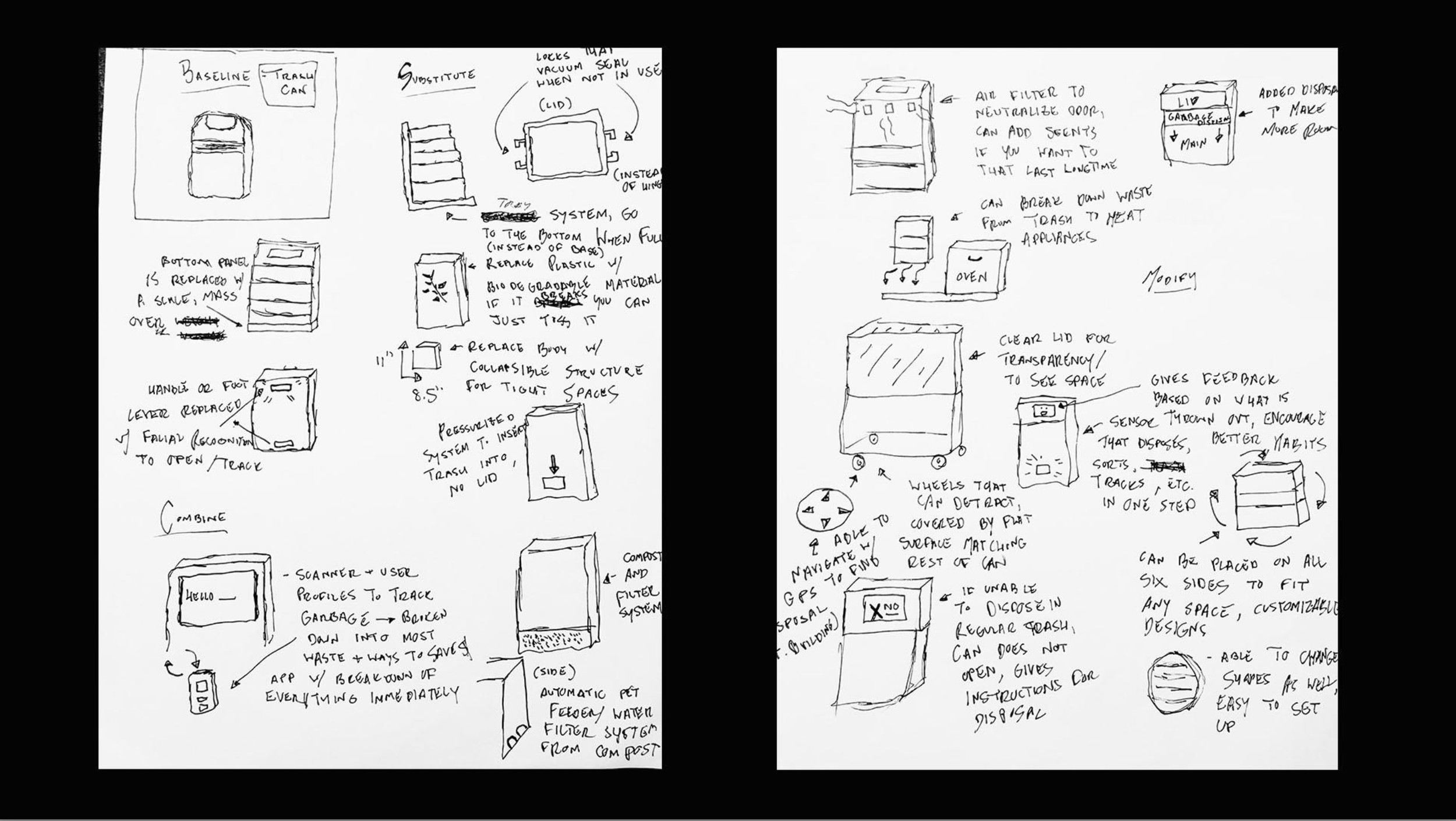AI-Assisted Ideation: fUture of Waste Management
Role: Individual Designer
Timeline: 3 Weeks
Year: 2025
Tools: Sketching, Adobe Firefly, Photoshop
The challenge
I was asked to imagine an everyday object reimagined for a speculative future. I chose a standard household trash can and explored how it might evolve in a world where waste becomes a critical resource for survival. The goal was to use AI not to replace creativity, but to extend it, generating unexpected directions beyond traditional sketching.
The Process
I began by studying how waste management, repurposing, and modular design might shift by 2040. I looked at sustainability trends, emergency infrastructure, and how basic household items could take on new roles in unstable environments.
Using my baseline sketches, I prompted AI tools to explore form variations, added functions, and alternate materials. My role was to direct and refine the prompts, evaluate the results, and decide which directions were worth pursuing. AI acted as a rapid branching tool, not a decision-maker.
I combined the strongest AI outputs with my hand-drawn concepts, revising proportions, surfaces, and functional details. From there, I organized the progression into a clear narrative that moved from baseline to exploration to final speculative vision.
The Solution
The final concept reimagines the trash can as a modular, multifunctional object that not only stores waste but helps convert materials into usable resources. Its structure suggests adaptability—able to shift roles in emergency scenarios, support survival needs, and integrate into uncertain future environments.
The piece is speculative because it extends a familiar object into a context shaped by scarcity, resilience, and environmental instability.
What I Learned
This project taught me how to treat AI as a collaborative ideation tool. It expanded my thinking without removing my role as the designer. I learned how sketching, prompting, and iteration work together, and how speculative design lets everyday objects communicate larger future issues. It also sharpened my ability to curate AI output rather than rely on it directly.


